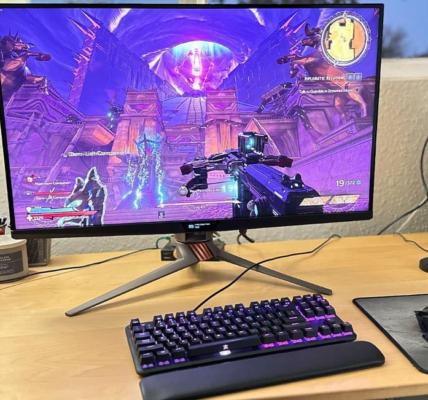Introduction: In the rapidly advancing landscape of gaming, Artificial Intelligence (AI) is emerging as a transformative force, reshaping the way we play, compete, and experience virtual worlds. AI gaming systems Redefining are not only enhancing the capabilities of non-player characters (NPCs) but are also creating entirely new dimensions of gameplay. This article delves into the revolutionary impact of AI gaming systems, exploring how they are pushing the boundaries of gaming and offering players unprecedented levels of immersion and challenge.
- Smart NPCs: Elevating In-Game Realism: Traditional gaming has long featured NPCs governed by scripted responses and predictable behaviors. AI gaming systems, however, introduce a paradigm shift by incorporating machine learning algorithms that enable NPCs to adapt, learn, and evolve in response to player actions. This dynamic interaction not only enhances the realism of in-game characters but also presents players with more challenging and engaging adversaries.
- Procedural Content Generation: Crafting Infinite Worlds: AI is taking procedural content generation to new heights, allowing games to create vast, procedurally generated worlds that adapt to player choices. Whether it’s the layout of a dungeon, the terrain of an alien planet, or the narrative twists and turns, AI-driven procedural generation ensures that no two gaming experiences are alike. This not only increases replayability but also opens the door to infinite possibilities in game design.
- Adaptive Difficulty Levels: Tailoring Challenges for Every Player: AI gaming systems are breaking away from the one-size-fits-all approach to difficulty levels of gama69. Instead, they dynamically adjust the game’s challenge based on the player’s skill level and performance. This adaptive difficulty ensures that both novice and seasoned gamers find a level of challenge that keeps them engaged without overwhelming or underwhelming their abilities, creating a personalized gaming experience.
- Natural Language Processing: Conversational Gaming Experiences: The integration of natural language processing (NLP) in AI gaming systems enables players to engage in conversations with in-game characters, shaping the narrative through dialogue choices. This not only enhances storytelling but also immerses players in a more interactive and dynamic gaming experience. Games like AI Dungeon showcase the potential of NLP in creating unique, player-driven narratives.
- AI in Multiplayer Environments: Evolving Competitiveness: AI is not limited to single-player experiences; it’s increasingly making its mark in multiplayer environments. AI-powered opponents and teammates in multiplayer games adapt to player strategies and behaviors, creating a more realistic and challenging competitive experience. This innovation adds a layer of unpredictability to multiplayer gaming, keeping players on their toes and encouraging strategic thinking.
- Real-time Analytics and Personalization: Tailoring Games to Individuals: AI gaming systems analyze vast amounts of player data in real-time, allowing for personalized gaming experiences. From recommending in-game items based on playstyle to suggesting new quests tailored to individual preferences, AI ensures that each player feels a unique connection to the virtual world, fostering a sense of ownership and investment in the gaming experience.

Conclusion: AI gaming systems are ushering in a new era of gaming, where adaptability, realism, and personalized experiences take center stage of gama 69. As technology continues to evolve, we can anticipate even more groundbreaking developments in AI-driven gaming, pushing the boundaries of what we thought possible. The future promises not just better games, but an entirely new dimension of interactive and immersive experiences, where the lines between virtual and reality blur, and players are the architects of their own digital adventures.



